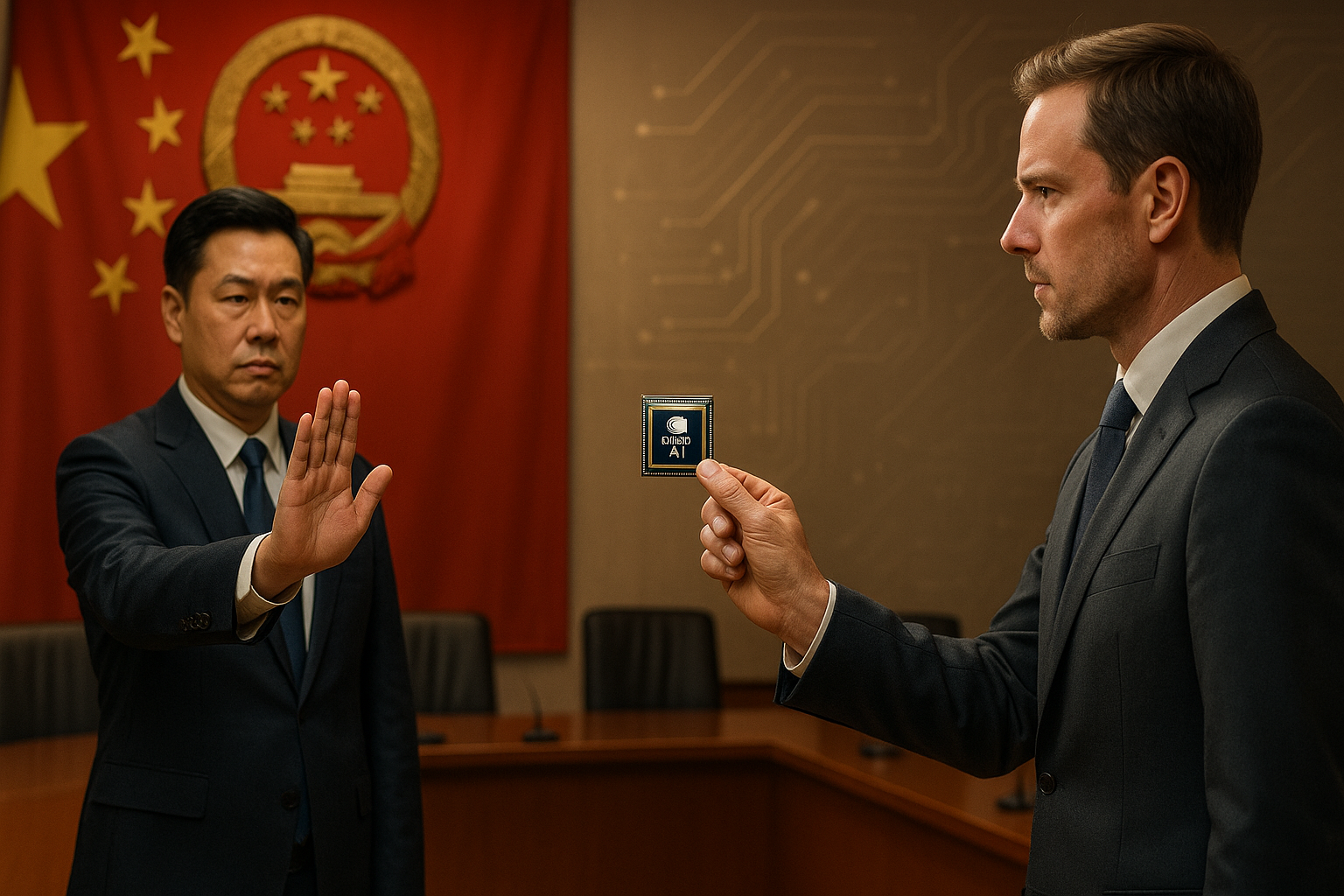Chinese officials have apparently had enough of Wall Street big mouths.
In what can only be described as diplomatic whiplash, Beijing has reportedly instructed Chinese tech companies to steer clear of Nvidia's newest AI chips following some rather provocative comments from Howard Lutnick, the Cantor Fitzgerald CEO who's cozied up to the Trump campaign as an advisor.
The whole mess started when Lutnick characterized the Biden administration's chip export controls as a mere "pillow fight" compared to the technological hammer Trump would supposedly drop on China in a second term. Not exactly the kind of talk that smooths international relations.
Beijing's reaction? Essentially: "Fine, we didn't want your fancy chips anyway."
I've been covering the semiconductor space for years, and this episode perfectly illustrates the industry's uncomfortable dual existence as both commercial enterprise and geopolitical weapon. Companies like Nvidia constantly walk a tightrope between maximizing sales and respecting national security guardrails—a balancing act that gets trickier by the day.
The market, predictably nervous about anything threatening Nvidia's seemingly unstoppable momentum, sent the company's shares down over 3%. Though if we're being honest, this reaction seems a bit overdone considering most of Nvidia's advanced AI chips were already blocked from Chinese markets through existing export controls.
Look, what's happening here isn't really about immediate revenue impact. It's about escalation risk. It's game theory playing out in real time.
China needs cutting-edge chips for its AI ambitions. America knows this. Both countries are engaged in a high-stakes game of technological chicken, with each side trying to maximize leverage while reducing dependency on the other. Lutnick's comments just forced everyone to show their cards earlier than planned.
What's particularly striking (and somewhat concerning) is how casually a single executive—not even in government yet—can trigger international ripples that move markets worth billions. The incident reveals just how hair-trigger sensitive the entire US-China tech relationship has become.
For context, we should remember that China has been pushing aggressively to develop its own semiconductor capabilities precisely to avoid these vulnerabilities. Their "Made in China 2025" initiative explicitly targets chip self-sufficiency. But progress has been... well, let's call it uneven. Chinese firms continue struggling to match the most advanced manufacturing capabilities of TSMC, Samsung, or Intel.
This tension extends well beyond just Nvidia. Every Western semiconductor company—from equipment makers like ASML and Applied Materials to designers like AMD—navigates this same precarious landscape. Their stocks often swing as much on geopolitical whispers as on quarterly results.
(There's something darkly humorous about an industry built on logical precision and deterministic physics finding itself at the mercy of such unpredictable human factors.)
If I were Jensen Huang, Nvidia's leather-jacket-loving CEO, I'd see this as yet another sign that diversification isn't just smart business—it's survival. The company's aggressive push into markets beyond China suddenly looks less opportunistic and more like existential risk management.
For investors watching this drama unfold, the real takeaway isn't to panic about Nvidia's China exposure—most analysts already discount significant Chinese revenue for advanced AI chips. Instead, this signals another turn of the screw in the ongoing technological decoupling between the US and China—a process creating both chaos and opportunity across the semiconductor landscape.
At some point, we may need to have an honest conversation about whether the semiconductor industry has become too strategically important to operate on purely commercial terms. What we're witnessing is the awkward, sometimes painful emergence of a new paradigm where national security considerations explicitly shape market outcomes.
I doubt this is what Howard Lutnick envisioned when he made those remarks. Nothing builds a Wall Street reputation quite like accidentally triggering international incidents that move multi-billion-dollar markets.
The question now: is this just a temporary diplomatic snit or an acceleration of the technological divorce already underway? Either way, the semiconductor chess match continues, with companies like Nvidia caught squarely in the middle—simultaneously too valuable to abandon and too powerful to ignore.
